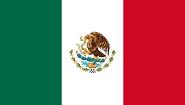Government/Policy

June 4, 2019
Mexican Delegation: Tariffs are Counterproductive
Written by Sandy Williams
A Mexican delegation led by Foreign Minister Marcelo Ebrard is in Washington trying to convince the Trump administration that tariffs are not the solution to stopping illegal immigration.
On Friday, President Trump announced that he would impose a 5 percent tariff on all goods imported from Mexico, with 5 percent monthly increases capped at 25 percent, until Mexico takes action to stem the flow of illegal immigration into the United States. The tariffs are to take effect June 10.
Tariffs, in combination with previously announced cuts of U.S. financial aid to Honduras, El Salvador and Guatemala, would be “counterproductive,” said Ebrard, “and could reduce Mexico’s capacity to give alternatives to migrants.”
Ebrard notes that Mexico has already taken action at the Trump administration’s request, including holding migrants in Mexico while amnesty claims are processed in the U.S. and rounding up and deporting migrants at its southern border. Ebrard says Mexico’s efforts will stop a quarter million migrants from entering the U.S. this year. Trump says that’s not enough.
On Tuesday, while Ebrard expressed optimism that an agreement could be reached, Trump said in a press conference with British Prime Minister Theresa May, that the tariffs will likely be imposed.
Said Trump, “We are going to see if we can do something, but I think it’s more likely that the tariffs go on. And we will probably be talking during the time that the tariffs are on, and they are going to be paid.”
Department of Homeland Security Acting Secretary Kevin McAleenan has proposed making Mexico “a safe third country” requiring migrants to make their asylum applications in Mexico without ever entering the U.S. Ebrard says such an agreement “would not be acceptable to Mexico.”
Ebrard did not say what concessions Mexico would be willing to accept, but stressed that a negotiated settlement would be preferable to a trade war of retaliatory tariffs.
Mexican Economy Minister Graciela Márquez said if the U.S. tariffs are imposed, Mexico will look to multilateral organizations, like the World Trade Organization, for help. Another measure could be selective tariffs on U.S. goods.
“We’re evaluating those possibilities. We’re getting prepared, but we trust that diplomacy and actions to persuade and convince to maintain integration and trade relations will work,” she said. “We don’t want to use tariffs to damage value chains, or to damage the creation of jobs, or damage investment, rather we want free trade to prevail in North America.”
Mexican President Andrés Manuel López Obrador said on Monday, “We are not going to get caught up in a confrontation. We continue considering the U.S. government to be a friend of the government of Mexico, and I want to continue being a friend of President Donald Trump.”
GOP Considering Action
Republicans in Congress, generally reluctant to challenge the president, are discussing whether they can garner enough votes to block Trump’s tariff on Mexico, according to the Washington Post. Congress can override the president’s declaration of a national emergency on the southern border and did so in March, but the resolution was vetoed by the president. To override a presidential veto Congress would need a two-thirds majority in the both the House and Senate.
Following a closed door meeting on Tuesday of Republican senators, officials said they believe they have enough Senate votes to override a presidential veto. “There is not much support in my conference for tariffs — that’s for sure,” said Senate Majority Leader Mitch McConnell (R-Ky.).
Members of both parties have warned the administration that penalizing Mexico with tariffs over immigration could jeopardize the USMCA and cause economic damage to the U.S.
(Editor’s note: SMU erroneously reported in Sunday’s issue that the tariff would begin at 10 percent rather than 5 percent. The mistake has been corrected on the website.)







